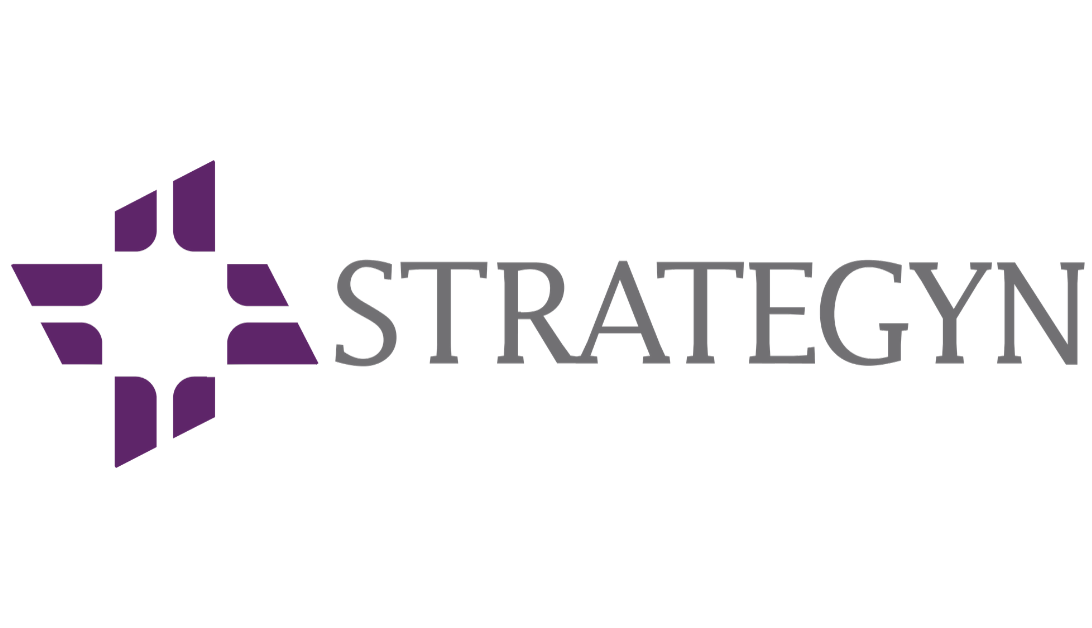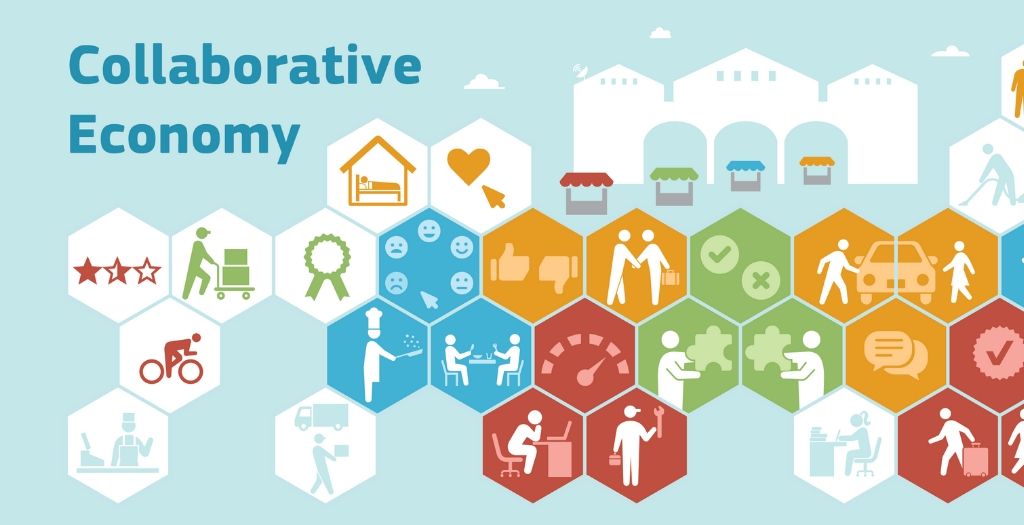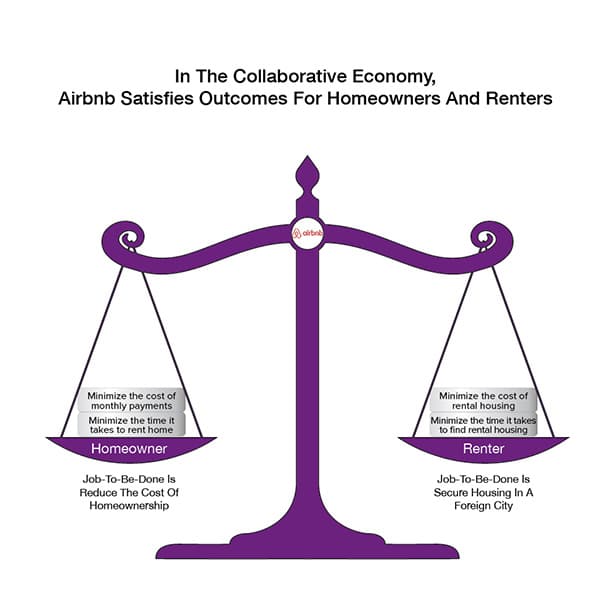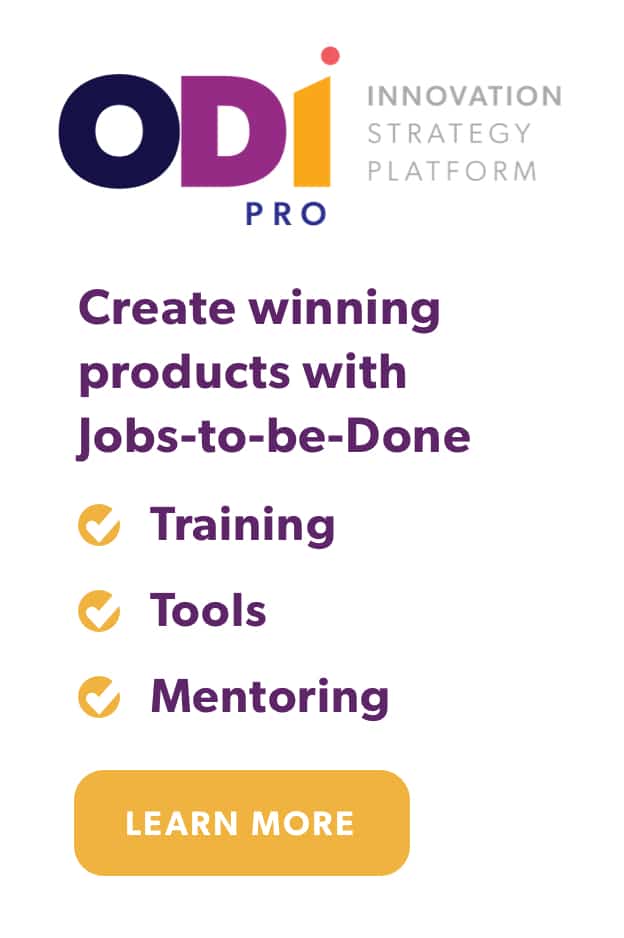Call it the sharing economy or the collaborative economy — we are consuming differently now than we ever have. One of the fastest-growing economic models proves that many people increasingly prefer access over ownership — just look at the success of Airbnb and Uber. These rising stars notwithstanding, the collaborative economy is still in its infancy and untapped opportunities abound for insightful entrepreneurs. We have only begun to see the first fruits of the collaborative-economy harvest. But how can we distinguish the ideas that will become the next blockbuster, collaborative-economy business from those that should remain on the back of a bar napkin?
Strategyn employees like to stretch the bounds of ODI’s Jobs-to-be-done framework by thinking how it applies across the business landscape. Lately, we’ve been discussing how the collaborative economy draws its strength from following the rules of ODI, not from throwing the rules out the window. Consider the jobs Airbnb and Uber help people get done better and which previously ignored needs these companies satisfy.
Jobs-to-be-done does not care about ownership.
Theodore Levitt’s famous adage, “People don’t want a quarter-inch drill; they want a quarter-inch hole,” succinctly illustrates the triumph of access over ownership. Why pay for and take on the burdens of owning a drill if you can access a drill or hire someone to do the drilling for you better and cheaper than you could do yourself?
Airbnb and Uber fundamentally improve consumers’ access in their markets by selling outcomes. The customer can now get jobs done better and cheaper than they could if they relied on traditional products and old ways of doing things.
In the case of Airbnb, the job-to-be-done is “secure temporary housing in a foreign city.”
Models of mainstream hospitality (hotels, inns, bed-and-breakfast establishments) have long been the only options for places to stay when traveling to an unfamiliar city. Airbnb challenges that notion and expands the depth and breadth of short and medium-term housing stock, anywhere, anytime. Its hospitality model lowers or entirely removes the barriers of affordability, ownership, access, and geography in the job of providing housing. The company’s core competency is supplying a bed no matter where you are. With this highly specialized focus for such an essential need, it is most likely the case that the desired outcomes Airbnb addresses score high not only on importance but also on satisfaction.
Uber’s job-to-be-done is “get transported over short distances.”
Uber has an equally simple premise: personalized car transportation that is instantaneous and ubiquitous. The main barrier to car ownership (expense) as well as other practical constraints (lack of parking space in urban areas) become irrelevant when using Uber’s product, which solves the problem in a completely novel way: Passengers achieve convenience without the hassle of owning a car. In fact, some urban families now forgo a second family car, or car ownership altogether, relying on Uber to get the job done when they need to haul groceries or take children across town to the doctor’s office. And while the clever use of app technology democratizes the experience, it is not the secret sauce. Uber succeeds because it gets the job done better than existing solutions, with ease of use, lower fares, and faster round-trip travel than taxis, buses, and other forms of urban transportation. Conceptual advantage is the surest way to uproot an incumbent.
Airbnb and Uber solved jobs-to-be-done on both the supply and demand sides of the market.
The consumer is only half of the story. At the same time Airbnb and Uber have been improving consumer outcomes, they have also tackled supply-side needs and jobs-to-be-done. At an abstract level, both firms help utilize previously underutilized assets: homes and cars. Homes sat empty and personal cars sat idle before Airbnb and Uber created marketplaces. Additionally, these firms improve financial outcomes that were previously ignored or underserved in homeownership and car ownership. Airbnb provides homeowners the opportunity to “minimize the cost of homeownership” by renting their entire home or extra space when it is not occupied, creating income for the homeowner. Uber provides car owners the opportunity to “minimize the cost of car ownership” by driving their cars in the service of others, creating income for the car owner. By aligning the unmet needs of homeowners and car owners with consumers’ unmet needs, Airbnb and Uber have created a powerful 1-2 combination on a scalable platform that is increasingly available anywhere there are homeowners, car owners, and people that need transportation and housing.
Markets reward highly satisfied outcomes. Entrepreneurs should not forget this when asking people to ditch ownership for access.
With the ODI framework, an entrepreneur can separate good ideas from bad and can tap the power of the collaborative economy. While technology will likely play a critical role in the launch of the next big idea, the next sector to be disrupted by the collaborative economy — whether food, healthcare, education, or another area — is only ripe for the taking because current products and services leave people’s needs unmet and don’t satisfactorily help them with their jobs-to-be-done; a business merely embracing technology does not guarantee it’s success. Because ODI is solution agnostic, it is not swayed by appeals to traditional vs. new technology. It only cares about the jobs-to-be-done framework and desired outcomes — which are all that count when it comes to ODI-based innovation. ODI can help entrepreneurs focus on what truly matters and keep them from being seduced by a technology-first approach to creating new businesses.
Before setting out on the next blockbuster collaborative-economy idea, entrepreneurs should be challenged by the investment community to clearly state the jobs-to-be-done and outcomes they plan to address and improve for all participants.






